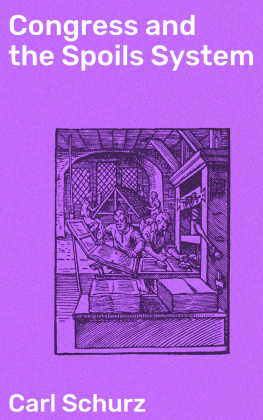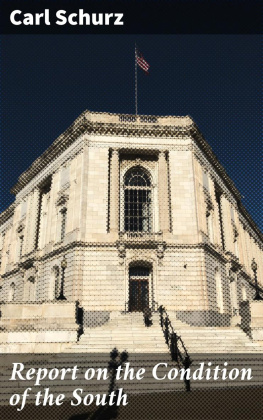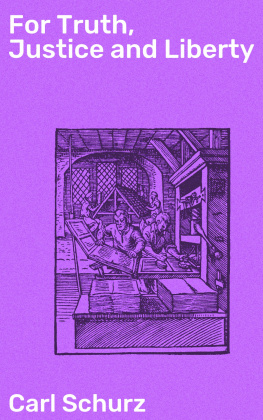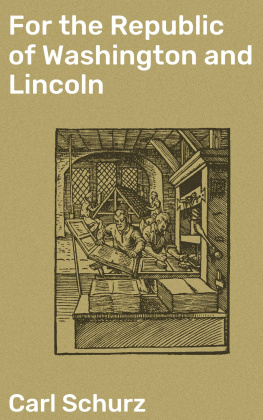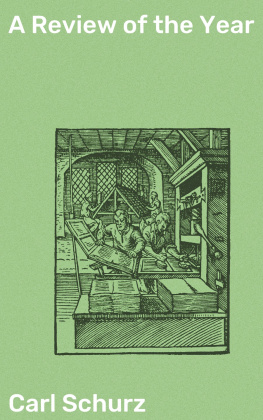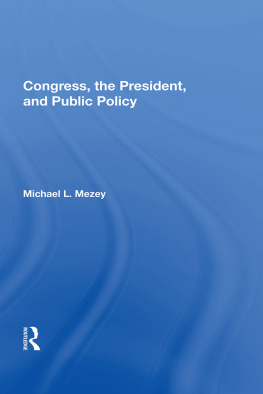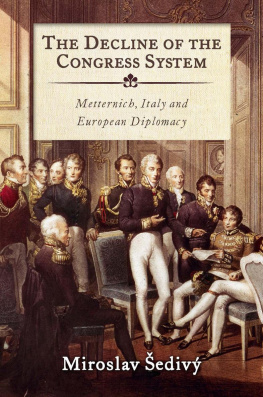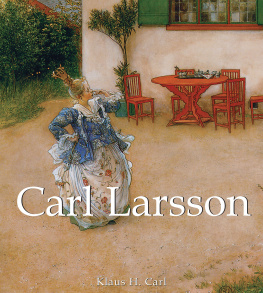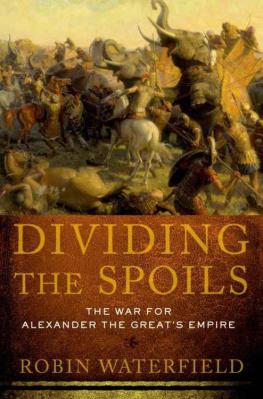Carl Schurz - Congress and the Spoils System
Here you can read online Carl Schurz - Congress and the Spoils System full text of the book (entire story) in english for free. Download pdf and epub, get meaning, cover and reviews about this ebook. year: 2013, publisher: CreateSpace Publishing, genre: Politics. Description of the work, (preface) as well as reviews are available. Best literature library LitArk.com created for fans of good reading and offers a wide selection of genres:
Romance novel
Science fiction
Adventure
Detective
Science
History
Home and family
Prose
Art
Politics
Computer
Non-fiction
Religion
Business
Children
Humor
Choose a favorite category and find really read worthwhile books. Enjoy immersion in the world of imagination, feel the emotions of the characters or learn something new for yourself, make an fascinating discovery.
- Book:Congress and the Spoils System
- Author:
- Publisher:CreateSpace Publishing
- Genre:
- Year:2013
- Rating:5 / 5
- Favourites:Add to favourites
- Your mark:
- 100
- 1
- 2
- 3
- 4
- 5
Congress and the Spoils System: summary, description and annotation
We offer to read an annotation, description, summary or preface (depends on what the author of the book "Congress and the Spoils System" wrote himself). If you haven't found the necessary information about the book — write in the comments, we will try to find it.
Congress and the Spoils System — read online for free the complete book (whole text) full work
Below is the text of the book, divided by pages. System saving the place of the last page read, allows you to conveniently read the book "Congress and the Spoils System" online for free, without having to search again every time where you left off. Put a bookmark, and you can go to the page where you finished reading at any time.
Font size:
Interval:
Bookmark:

It is with a feeling of peculiar satisfaction that I greet the fifteenth annual meeting of the national Civil Service Reform League at the seat of the National Governmentthe place where the necessity of the Reform we advocate has been most conspicuously demonstrated, and where also its most conspicuous and fruitful successes have been achieved.
When I speak of the success and stability of democratic institutions being imperiled, I do not mean the danger of a sudden, grand and startling collapse, but I mean the danger of a gradual decay of those elements which are essential to their vitality. I have always been a firm believer in the excellence of democratic governmentthe government, as Abraham Lincoln defined it, of the people, by the people and for the people. It is a government of the people, inasmuch as in the people all sovereignty resides. It is a government by the people, inasmuch as the people make the laws and direct the conduct of public affairs through their servants chosen by them for those objects. It is a government for the people, inasmuch as public offices are instituted and charged with certain functions and endowed with certain powers to be administered solely for the service and benefit of the people, and for no other purpose. These are the vital requirements of democratic government. In the same measure as these requirements fail to be fulfilledas any element of sovereignty passes away from the people, or as the making of the laws and the conduct of public affairs cease to be controlled by the people's will, or as the administration of the public offices is diverted from the purposes for which they have been institutedthat is to say, as the offices are used to serve ends other than the public benefit, or are entrusted to persons not apt to give to the people the best attainable servicein that measure democratic government fails.
The appearance among us of American men and women who have fallen in love with the splendor of monarchical courts, and who also please themselves by imaginative imitations of aristocratic society, has from time to time called forth ingenious speculation as to whether the great democracy of the American Republic will not eventually be turned into a monarchy. I am convinced that, if there be any such danger at all in store for us, it will not come from such coteries of weak minds and impotent ambitions; but it might arise either from a failure of democratic government to afford the necessary protection to individual rights, to property, to public order and safety, so that society would turn for that protection to a strong man, or from democratic government becoming an instrument of private cupidity and falling into the hands of the chief of an organization looking for plunder.
Font size:
Interval:
Bookmark:
Similar books «Congress and the Spoils System»
Look at similar books to Congress and the Spoils System. We have selected literature similar in name and meaning in the hope of providing readers with more options to find new, interesting, not yet read works.
Discussion, reviews of the book Congress and the Spoils System and just readers' own opinions. Leave your comments, write what you think about the work, its meaning or the main characters. Specify what exactly you liked and what you didn't like, and why you think so.

